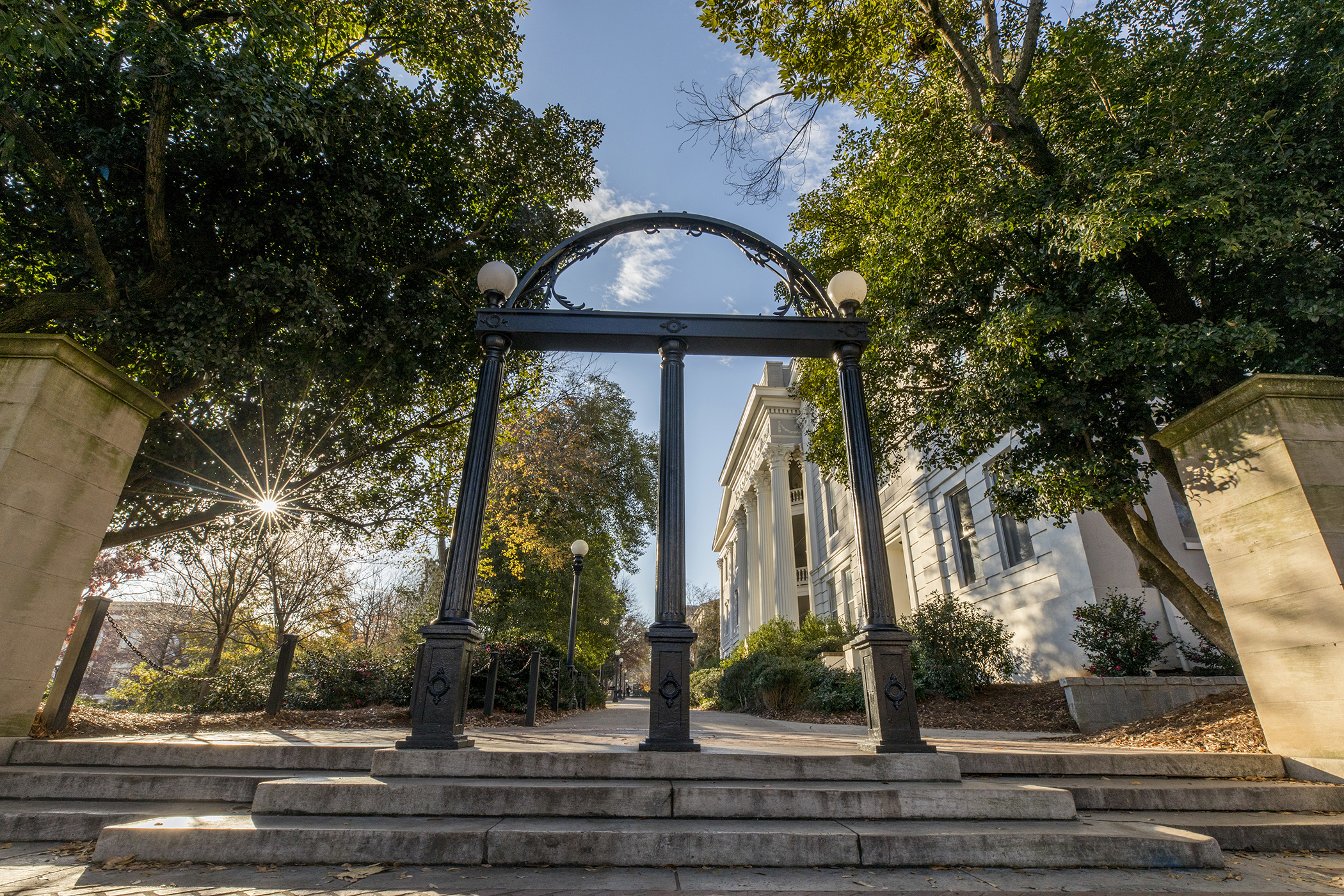More than 60 faculty members and administrators from across the university participated in the 2024 Academic Affairs Faculty Symposium on faculty roles, responsibilities and resources to support student success at UGA.
The two-day meeting was held March 28-29 at Lake Lanier Lodge.
In addition to four working group sessions that focused on developing recommendations for the provost on how to enhance student success at the university, the participants attended presentations by senior administrators and a fireside chat by President Jere W. Morehead.
Paige Carmichael, professor of veterinary pathology in the College of Veterinary Medicine, introduced Senior Vice President for Academic Affairs and Provost S. Jack Hu who convened the program and welcomed the group. He challenged the attendees to think of ways to improve success statistics and narrow the gaps across the student demographic backgrounds.
The opening session, led by Andy Borst, vice provost for enrollment management, and Tom Mote, associate vice president for instruction, provided a glimpse of UGA by the numbers and initiatives undertaken across the institution to improve first-year retention rates and time to graduation.
Meg Mittelstadt, director of the Center for Teaching and Learning, moderated a session on classroom practices with professors Gary T. Green, Audrey Haynes and Dax Ovid. They discussed normalizing confusion for students in the classroom and being accessible for questions, the importance of predictability and clarity in coursework, and tips for fostering engagement, not just with the material, but with each other and faculty.
A session on active learning and universal design by Melissa Landers-Potts, a principal lecturer and assistant to the dean for inclusive excellence in the College of Family and Consumer Sciences, and Leah Carmichael, director of active learning and a senior lecturer in the School of Public and International Affairs, continued the theme of student engagement and effective instructional practices.
Beau Seagraves, associate vice president for student well-being, shared a vision for well-being as a central hallmark of university culture as administrators, instructors and staff adopt a holistic view of students. Seagraves emphasized that success depends not only on academic acumen but is also affected by social, physical, spiritual, emotional, environmental and financial facets of the student experience.
Morehead’s overview of the state of the university followed by a question-and-answer session provided the culmination of the first day of sharing and planning.
On the second day of the symposium, the working groups finalized proposals and shared recommendations to enhance student success with other participants. Groups presented various ideas and approaches for undergraduate and graduate outreach across the UGA community.
Marisa Anne Pagnattaro, vice president for instruction, concluded the symposium by summarizing some of the major common threads from the symposium such as learner-centered instructional techniques and the cultivation of a community of care.
“Student success begins with student well-being,” Pagnattaro said.
The 2024 planning committee was led by Melissa Landers-Potts with Leah Carmichael, Gary T. Green, Mark M. Huber, Michele W. Matthews, Paul Matthews and Vice Provost for Academic Affairs Jeanette Taylor.
The five working groups on undergraduate students, graduate students and administrative offices were moderated by Leah Carmichael, Annie Carson Welch, Suzanne Graham, Gary T. Green and Paul Matthews.
The 34th symposium was coordinated by the UGA Teaching Academy with funding and support from the Office of the Senior Vice President for Academic Affairs and Provost, the College of Agricultural and Environmental Sciences and the Louise McBee Institute of Higher Education.


